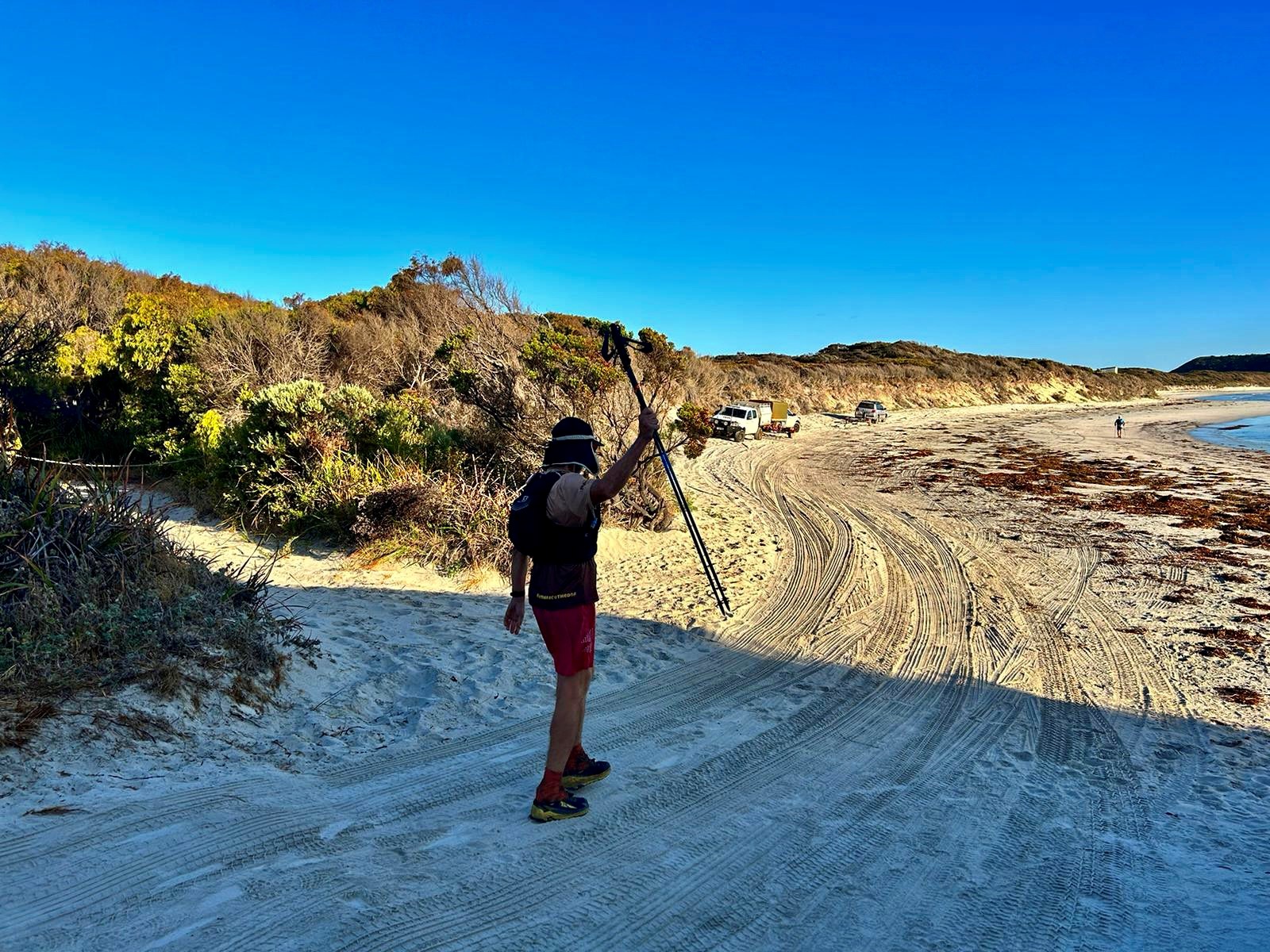December 29, 2016

At the other end of the scale Jon joined us at the start of the run, after already running 10k, and then carried on for a 55k total, again not stopping for the best part of running, the apre-run muffin and coffee. Actually while I type this Jon is probably still running. (..and eating as he was carrying a handful of treats which apparently you’re allowed to do if you run ultras.)
Two different training approaches for two people training for different distances. Jon is training for the ADU ( http://australiadayultra.com ) and has gone down the path of several long runs (50k+) compared to my double up days and no real longer distance runs. Mark is more focused on pace rather than distance as he aims for the 5k and 10k races he excels in.
Me and the posse just do enough to justify the coffee and muffin at Yelo and we actually discussed the calories in (via the coffee and muffin) compared to the calories out gained after the 19k easy run. We all agreed we’d be calorie negative after the 19k run and this certainly made the muffin taste that bit sweeter.
Should you train differently for different distances or can one training method be a good fit for all running distances. ? I believe building distance first , as a foundation, concentrating on time on legs, does benefit all distance running. The change occurs when you fine tune your training for your specific race distance. Myself, being a jack of all trades, I have built a big foundation through years of injury free running. (I hate even typing those words..) This has then allowed me to fine tune to a specific race distance given a few weeks notice. For example if I have a 10k or half marathon coming up I’ll concentrate on more speed work like a mona fartlek or some 5k park runs. These will get me use to the pace I need to maintain during the upcoming race. Also helps the fast twitch muscles fire ( http://running.competitor.com/2014/07/training/the-role-of-muscle-fibers-in-running_82416 A good article on the different muscle fibres) For marathons I concentrate on longer tempo runs at marathon pace getting use to running for longer at the pace I need to maintain for the marathon. I’ll also keep working on the shorter, faster runs as these will still add value, if nothing else if feels good to run fast.
Ultra running is all about time on legs and Jon’s approach is certainly the ‘normal’ way of training. Slow and steady and all about time rather than distance, the most important factor is finishing fresh as you move towards the required distance. Obviously you aren’t going to run a 100k training run for a 100k ultra but you should probably get up in the 50k area , probably ? This is from a runner who doesn’t intend to run past 30k but what can go wrong after 8 hours of running ? (Also there is a parachute clause that you can stop at 50k and claim a 50k ultra medal. Funnily enough my friend Rhys used this to his advantage when he entered the 50k and bailed after 25k. The RD insisted on giving Rhys a 25k race medal so really he’d won that race albeit he started 3 hours before anybody else as they were staggered starts. A technicality according to Rhys.)
So back to Mark Lee and his inability to run slow. Is this causing him a disservice in his training , probably not as he has been at the front of the pack for a number of years and continues to record great running times. Would he benefit from a 3-4 month period of slow, high mileage training; undoubtably. Will he ever be able to achieve this ? Not a chance, far too much time fidgeting , looking at his watch, adjusting his shorts and top, looking at his watch etc etc Some people just don’t get the beauty of slowing down to speed up. Saying that I’ve raced Mark many times of the years and am yet to beat him so maybe I need to fidget more or just run faster ?
